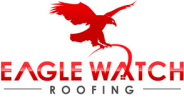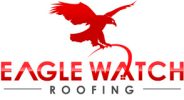How Residential Roofers Detect and Repair Roof Leaks Before They Cause Damage
The most feared problems for house owners are roof leaks since the results can cause major structural and property damage if not detected in time.
Therefore, quick detection and repair are required to avoid expensive repairs in the long run.
Residential roofers specialize in the identification of probable leak sources and the implementation of repair solutions to your home.
Whether you are looking for “residential roofers near me,” “best residential roofers near me,” or “residential roofers near me with free estimates,” this guide will give you everything you need to know about how professional roofers handle leaks and why it’s important to take care of them early.
Causes of Roof Leaks
A roof leak has to be identified with respect to its cause.
As much as roof leaks result from many causes, home roofing professionals are equipped with ways of identifying these causes:
Damaged or Missing Roofing Materials
While shingles, tiles, or metal sheets may deteriorate as they age and as the effect of weather conditions, as soon as they get damaged or are missing, water has a clear route to getting into the roof structure that can easily lead to the formation of leaks.
Installation Issues
The roof leaks are often associated with the poor installation of roofing materials.
If sealing is not good or flashing is installed incorrectly, weak points may form where water seeps through.
Clogged Gutters and Downspouts
When there is debris or leaves in gutters and downspouts, water will not drain from the roof and can build up, overflow, and possibly leak along eaves or roof edges.
Damaged Flashing
Flashing seals the joints and transitions around chimneys, vents, and dormers of the roof.
When this flashing rusts, it shifts or loses its seal, and water can penetrate your home.
Cracked Roof Ventilation
Good attic ventilation discourages the buildup of moisture, which causes leaks to occur.
If cracks or damage appear on a roof or soffit vents, moisture can go into the attic space, causing leaks.
Structural Issues
Structural issues, such as a sagging roof, decaying support beams, or shifting foundations, compromise the integrity of the roof system and can eventually cause leaks.
A professional residential roofer will be able to find these hidden structural weaknesses with a detailed roof inspection.
Indications of a Roof Leak and Early Detection

Before water damage comes up, residential roofers have already known to watch for sneaky signs of a leak.
They usually carry out early leak detection with the help of a methodical procedure as follows:
Interior Examination
Stains in the ceiling or walls caused by water are very common internal indications of roof leakage.
Peeling of the paint and paper peels characterizes an interior sign of roof leakage.
Also, mold growth indicates a roof leakage.
Attic Check
Residential roofers inspect the attic space for damp insulation, water stains, or light coming through gaps in the roof structure, which is a sign of water entry points.
Exterior Inspection
Missing or damaged shingles, cracked roofing materials, and deteriorated flashing around chimneys, vents, or dormers are visible signs that water might be penetrating your roof.
Gutter and Downspout Check
Clogged gutters or downspouts may cause water accumulation, which can lead to roof leaks.
So, roofers check all the gutters and downspouts for obstruction and damage.
Ventilation Check
Ventilation is the lifeline preventing the accumulation of moisture.
Roofers check ridge vents, soffit vents, and other ventilation points to make sure they are working correctly and not being choked.
How Professional Home Roofing Companies Fix Roof Leaks
Once a leak in the roof has been identified, a professional roofer will come and approach the repair by strategy.
Here’s a breakdown of the typical roof leak repair process step by step:
Safety Measures
Residential roofers first ensure to take proper safety measures such as putting on gloves, goggles, non-slip footwear, and safety harnesses when necessary.
They will undertake these repairs when there is dry weather for better safety conditions.
Leak Location and Source Identification
The roofer will trace the source of the leak by checking the interior and exterior of the house.
Water stains or mold growth in ceilings and walls may reveal the general area from which the leak originates.
Clearing Debris
Remove the leaves, twigs, and other debris on the roof and gutters so they can properly perform in the flow of water.
Obstruction in the gutters poses chances for water to pool.
Pooling or accumulation may lead to increased leakage chances.
Inspection and Repair of Roofing Material
Roofs are inspected for damage due to cracks or gaps in order to ensure that water does not leak underneath.
Damaged shingles and tiles are changed, while exposed cracks are sealed to avoid leaking.
Checking of Flashing and Seals
Roofers inspect the flashing and seal around the roof penetrations, which include chimneys, vents, and skylights.
Damaged flashing must be replaced or resealed as necessary to maintain the continued integrity of the waterproof roof.
Waterproofing Membrane
The roofers will further apply a waterproof membrane or coating over the repaired section to ensure that the water penetrating the repaired section in case of further leaks.
The best quality waterproof materials are designed with particular roof needs to make sure that there is an extension of the lifespan of repairs.
Preventive Measures by Homeowners
Apart from prompt repairs, there are other preventive measures homeowners can adopt to minimize the occurrence of roof leaks:
Roof Inspection and Maintenance
A residential roofer should check for early signs of roof damage that will require frequent maintenance to the roof.
Roof damage prevention includes gutter clearing, cutting of hanging branches, and more to prevent debris build-up on the roof.
Monitoring for Recurrence
Monitoring the recurrence is another post-repair activity.
Residential roofers recommend that after heavy rains, check for signs of water stains, dampness, or even mold growth in the attic or on ceilings and walls.
Follow Manufacturer Guidelines
Manufacturer guidelines must be adhered to while doing the repair or maintenance.
Residential roofers are trained to adhere to such standards to ensure the effectiveness and durability of the repairs.
Choosing the Right Residential Roofer
Finding the best residential roofer for leak repair is essential for quality and peace of mind.
Here are some tips to help you find the right contractor:
Local Knowledge
Find “residential roofers near me” who know the local conditions and specific conditions of roofing in that area.
Best Residential Roofers Near Me
Find the “best residential roofers near me.”
Read customer reviews.
Find reliable contractors known for effective roof repairs.
Free Estimates
Most professional residential roofers offer free estimates so that you will be in a better position to know what to expect in terms of pricing and services without any obligation.
Licensing and Insurance
Ensure you hire fully licensed and insured residential roofers.
This will help both parties in case of accidents or damages.
Experience with Leak Repair
Not all roofing contractors specialize in leak repair.
It’s better to hire residential roofers who have a good record in leak detection and repair.
Conclusion
It’s not just a nuisance; a leaking roof can lead to the necessity of expensive repair works as well as further damage to the structure, should you not address them when they’re still in the initial stage.
Roof leak experts are trained and adept at detecting and patching a leakage before it triggers greater problems, therefore not degrading the home itself.
With knowledge of causes and signs of roof leaks as well as trusted, experienced roofing professionals, homes could surely be kept in top roofing condition.
Whether you’re looking for reliable “residential roofers near me” or “residential roofers near me with free estimates,” it is a fact that preventive roof maintenance and timely repair will give you a sturdy, leak-free roof.
It doesn’t matter if the issue is minor or something big; the best residential roofers near you will do everything to protect your home and keep you carefree in rain or shine.
FAQ
How do I detect if my roof is leaking?
Some common signs are water stains on the ceiling or walls, a damp or mouldy smell, peeling paint or wallpaper, or visible mould or mildew growth in the attic spaces. Dark streaks or moisture buildup near vents, chimneys, or skylights can also be another sign of a leak. Residential roofers can even detect these signs early as part of regular inspections.
Can I repair a leaking roof myself, or should I hire a professional roofer?
This calls for fixing a leaking roof on your own or calling an expert roofer.
Minor repairs such as replacing a handful of shingles or a simple gutter cleaning are only something homeowners can take care of, depending on the situation. Much larger leaks or major damage should be serviced by professionals. Residential roofing companies have the training and equipment to properly diagnose and remediate leaks properly properly properly, ensuring they are protected against future problems. If uncertain, search for “residential roofers near me with free estimates” to see what a professional has to say.
How long does leak roof repair take?
The time it may take to cure the leak on the roof depends mainly upon the extent of the damage and accessibility. Some small repairs might require a few hours, while comprehensive repairs may take an entire day. Finally, weather conditions and the type of roof also have factors upon which the roof repair may rely, considering the requirement for dry conditions to seal.
How often should I have my roof inspected for leaks?
Roof check-ups should be done at least once a year, preferably in spring or fall, but after a stormy weather event or heavy wind, another check-up should be conducted. Regularly checking with residential roofers can prevent small problems from turning into major issues and increase the lifespan of your roof.
What tools and materials do residential roofers use to repair leaks?
Residential roofers always use materials, including basic roof shingles, cemented roofing, flashing on the roof joints, and caulking, not to mention the waterproofing membrane meant for repairs. Among them, safety gear, utility knives, ladders, or hammers become important. At the same time, a professional roofer will also utilize equipment or tools to easily get up, access, or come in contact with each of the parts of the roof where the leak was reported.
Do roof repairs come with any warranty or guarantee?
Many professional residential roofers often extend a warranty or guarantee about their work, but that depends on the range of the repair and what material is used. For prospective roofers, when reviewing contractors in your neighbourhood, you can ask how their warranties are with your shortlisted contractors because reputable companies usually give a warranty term for the work to build good confidence in their good performance.

